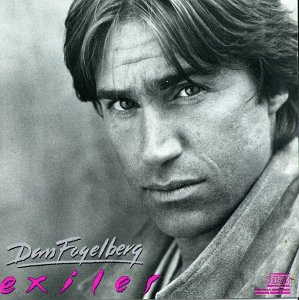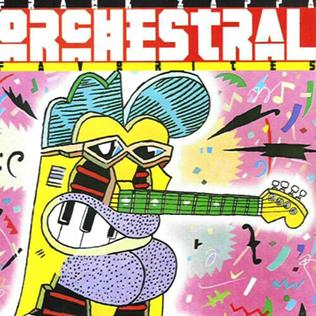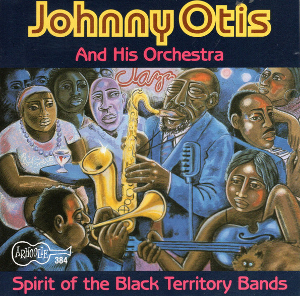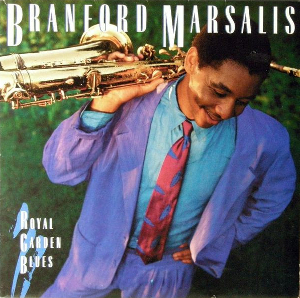
Uncle Meat is the sixth album by the Mothers of Invention, and seventh overall by Frank Zappa, released as a double album in 1969. Uncle Meat was originally developed as a part of No Commercial Potential, a project which spawned three other albums sharing a conceptual connection: We're Only in It for the Money, Lumpy Gravy and Cruising with Ruben & the Jets.

Exiles is an album by the American musician Dan Fogelberg, released in 1987. It includes the A/C hits "Lonely in Love" and “Seeing You Again” and the pop hit "She Don't Look Back". Fogelberg supported the album by touring with Wendy Waldman.

Don Gabriel Pullen was an American jazz pianist and organist. Pullen developed a strikingly individual style throughout his career. He composed pieces ranging from blues to bebop and modern jazz. The great variety of his body of work makes it difficult to pigeonhole his musical style.

The bass saxophone is one of the lowest-pitched members of the saxophone family—larger and lower than the more common baritone saxophone. It was likely the first type of saxophone built by Adolphe Sax, as first observed by Berlioz in 1842. It is a transposing instrument pitched in B♭, an octave below the tenor saxophone and a perfect fourth below the baritone saxophone. A bass saxophone in C, intended for orchestral use, was included in Adolphe Sax's patent, but few known examples were built. The bass saxophone is not a commonly used instrument, but it is heard on some 1920s jazz recordings, in free jazz, in saxophone choirs and sextets, and occasionally in concert bands and rock music.

Orchestral Favorites is an album by Frank Zappa, released in May 1979 on his own DiscReet Records label, distributed by Warner Bros. Records. The album is entirely instrumental and features music performed by the 37-piece Abnuceals Emuukha Electric Symphony Orchestra. It reached number 168 on the Billboard 200 album chart in the United States.

Edward "Kidd" Jordan was an American jazz saxophonist and music educator from New Orleans, Louisiana. He taught at Southern University at New Orleans from 1974 to 2006.

The Essential Miles Davis is a 2-CD compilation album by Miles Davis released by Columbia Legacy on May 15, 2001. It belongs to Sony Music Entertainment's "The Essential" series, not to the series "Essentials", established by WEA International, and was released as part of Sony's Miles 75 Anniversary program. In 2008, The Essential Miles Davis 3.0 was released as a limited edition album featuring a bonus third disc that added five more songs to the original track list.

Hey, Where's Your Brother? is an album by the American musician Johnny Winter. It was released in 1992 by Point Blank Records. Edgar Winter played on three of the album's songs. The brothers supported the album by jointly playing several shows. The first single was "Johnny Guitar".

Roscoe Mitchell Quartet is an album by American jazz saxophonist Roscoe Mitchell recorded in 1975 and released on the Canadian Sackville label.

Moving In is an album by saxophonist Chris Potter. It was recorded in 1996 and released later that year by Concord. It features Potter in a quartet with pianist Brad Mehldau, bassist Larry Grenadier and drummer Billy Hart.

I'm Tired of Driving is an album by saxophonist/pianist Eddie Harris, recorded in 1978 and released on the RCA label.

Dark Blue is the fifth album led by jazz pianist and mathematician Rob Schneiderman, released on the Reservoir label in 1994.

Double Good Everything is an album by the American musician Smokey Robinson, released in 1991. It was his first album to be released by a label other than Motown.

Ball of Fire is an album by the Jamaican band the Skatalites, released in 1998 in the United States. The band supported the album with a North American tour, including shows with several Hellcat bands.

Spirit of the Black Territory Bands is an album by the American musician Johnny Otis, credited as Johnny Otis and His Orchestra. It was released in 1992. The album is a tribute to the music of the territory bands of Otis's youth; Otis played with several such bands in the 1940s.

Royal Garden Blues is an album by the American saxophonist Branford Marsalis, released in 1986. Marsalis promoted it with a North American tour.

The Ways of Warmdaddy is the second album by the American musician Wessell Anderson, released in 1996. The album title refers to Wynton Marsalis's nickname for Anderson; Anderson started with Marsalis's bands. Anderson supported the album with a North American tour.

Up a Lazy River is an album by the American musician Leon Redbone, released in 1992. Redbone supported the album with a North American tour. The first single, "Play Gypsy Play", was a minor radio hit in France. "Bittersweet Waltz" first appeared on an episode of the television show Life Goes On.

The Gift is the second album by the American musician Joe Louis Walker, released in 1988. Walker was backed by the Boss Talkers. He supported the album with a North American tour.



















